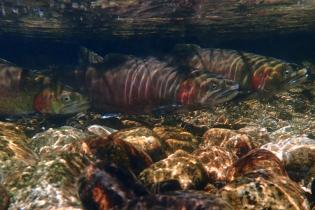Search
Program
Gulf Coast Conservation Grants Program
The Gulf Coast Conservation Grants Program will support conservation needs of the Gulf through innovative restoration concepts and approaches, build capacity through strategic engagement of youth and veterans, and fund species and habitat projects.Image
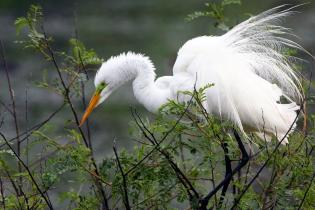
Program
Gulf Environmental Benefit Fund
In early 2013, a U.S. District Court approved two plea agreements resolving certain criminal cases against BP and Transocean which arose from the 2010 Deepwater Horizon explosion and oil spill. The agreements directed a total of $2.544 billion to NFWF to fund projects benefiting the natural resources of the Gulf Coast that were impacted by the spill.Image
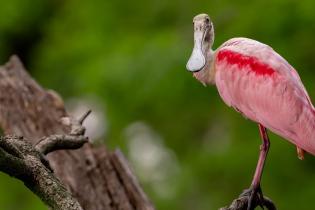
Program
Guy Bradley Award
The National Fish and Wildlife Foundation's Guy Bradley Award, presented annually, recognizes individuals for achievements in wildlife law enforcement.Image

Program
Hawai‘i Conservation Program
The National Fish and Wildlife Fund’s Hawai‘i Conservation Program aims to strategically protect and enhance essential habitats in Hawai‘i, from mauka to makai (from the mountains to the ocean), to reduce extinction risk and sustain resilient populations of native species.Image
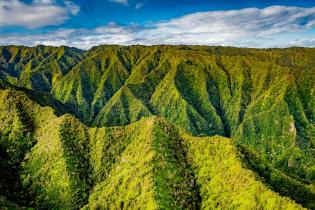
Program
Hurricane Response Marine Debris Removal Fund
The Hurricane Response Marine Debris Removal Fund is a partnership between NFWF and the NOAA Marine Debris Program that awards grants to assess, remove and dispose of marine debris caused by severe storms. Grants are awarded based on the targeted debris’ existing or potential impact to coastal communities and resources, and to prevent further harm to sensitive marine habitats and species listed under the Endangered Species Act.Image
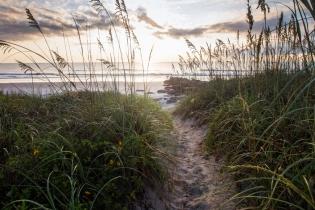
Program
Hurricane Sandy Coastal Resiliency Competitive Grant Program
The Hurricane Sandy Coastal Resiliency Competitive Grant Program (Hurricane Sandy Program) was designed to restore key habitats and bolster natural systems, enabling them to withstand the impacts of future storms. The Program funded 78 projects in 12 states and Washington, D.C., with the bulk of projects in states hardest hit by the hurricane, including: New Jersey, New York, Connecticut, Delaware, Maryland, Massachusetts, New Hampshire, Ohio, Pennsylvania, Rhode Island, Virginia, West Virginia, and the District of Columbia. The Hurricane Sandy Program is no longer active. Applicants seeking grants for coastal resilience projects are encouraged to consider the National Coastal Resilience Fund, and NFWF’s regionally-focused coastal programs, including the Long Island Sound Futures Fund, Delaware Watershed Conservation Fund and Chesapeake Bay Stewardship Fund.Image
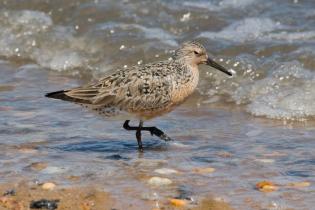
Program
Killer Whale Conservation Program
The Killer Whale Conservation Program supports efforts to advance the knowledge and conservation of killer whales with a primary focus on activities that aid in the recovery of the Southern Resident killer whale Distinct Population Segment. The program may also support catalytic projects in other killer whale populations.Image
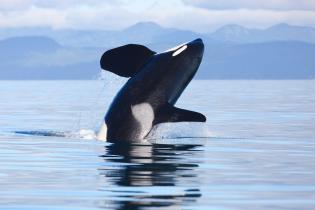
Program
Klamath Basin Restoration Program
NFWF has been active in conservation activities throughout the Klamath Basin for 30 years, awarding funds to help stabilize and increase populations of native and anadromous fish. These projects have been carried out by diverse organizations and entities including local, state, federal, and tribal governments and agencies, non-profit organizations, irrigation districts, watershed councils, and academic institutions.Image
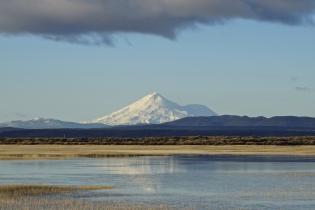
Program
Klamath River Coho Enhancement Fund
The National Fish and Wildlife Foundation's Klamath River Coho Enhancement Fund supports the survival and recovery of Southern Oregon/Northern California Coast Coho salmon.Image
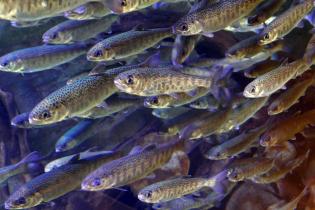
Program
Lahontan Cutthroat Trout
The goal of NFWF's Lahontan Cutthroat Trout initiative was to protect existing pure populations from contact with non-native trout, sustain Lahontan cutthroat populations in lakes, connect isolated populations into larger, more resilient populations, and increase Lahontan cutthroat angling opportunities.Image
